Tanzania & its Producers
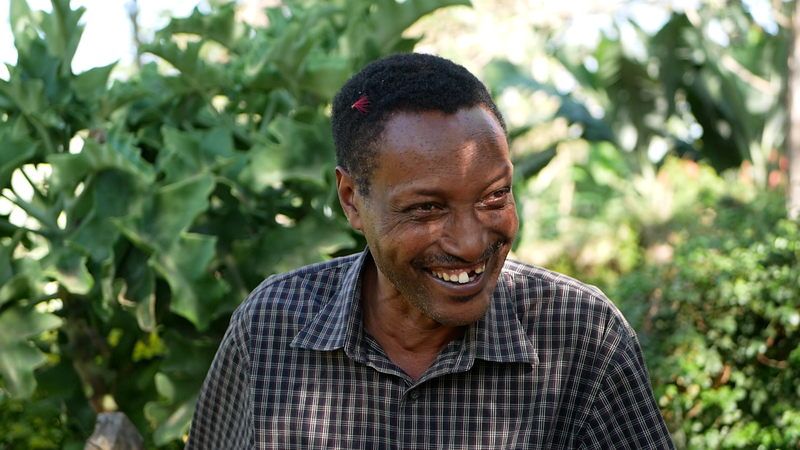
In Tanzania, 90% of the coffee is produced by small farmers that need to be organized in cooperative of minimum 50 members to be able to sell their coffee to auctions.
We visited two of them : Gideon Pallangyo from Aranga Cooperative in the slopes of Mount Meru (Arusha),
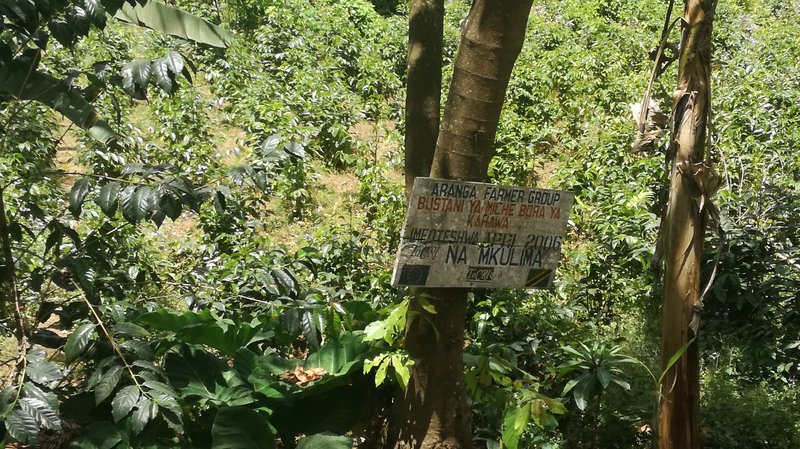
the other in Machame on the slopes of Mount Kilimanjaro.
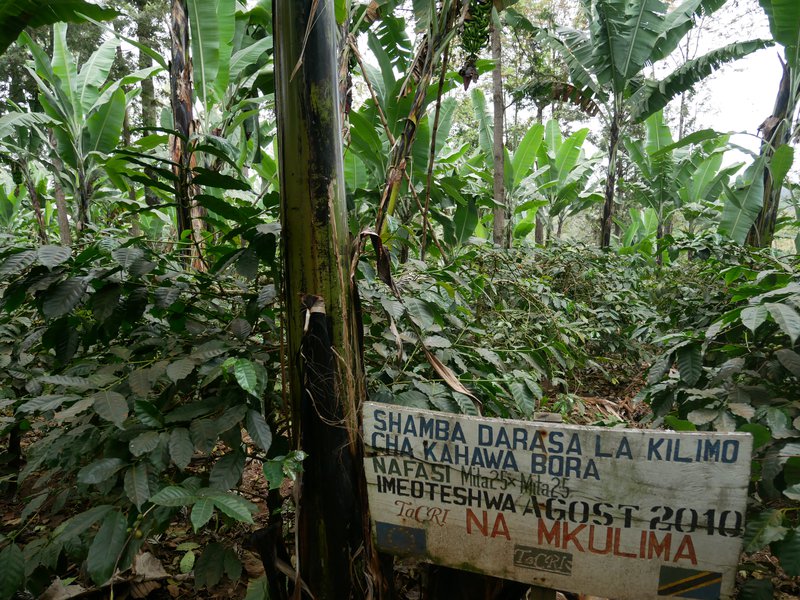
Both have been working in collaboration with the Tacri (Tanzania Coffee Research Institute), receiving seeds of new hybrid varieties more resistant to coffee berry disease and coffee leaf rust, the main diseases.
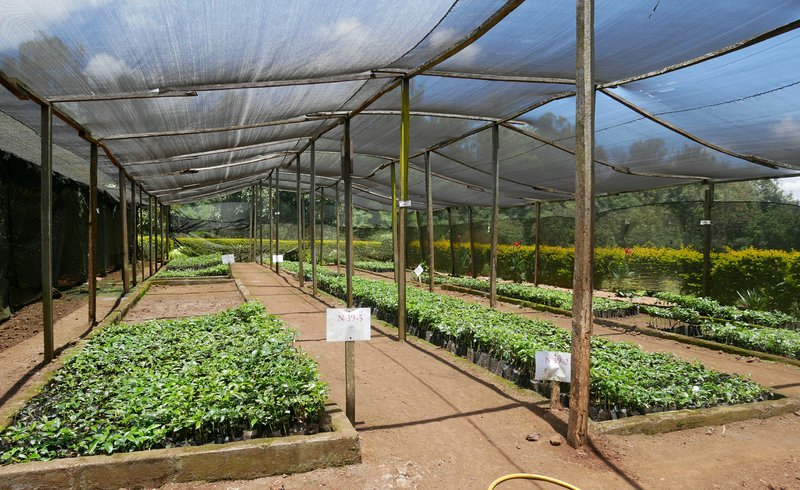
Both are taking care of the coffee processing themselves, although with different resources and methods: they have their own pulping machine,
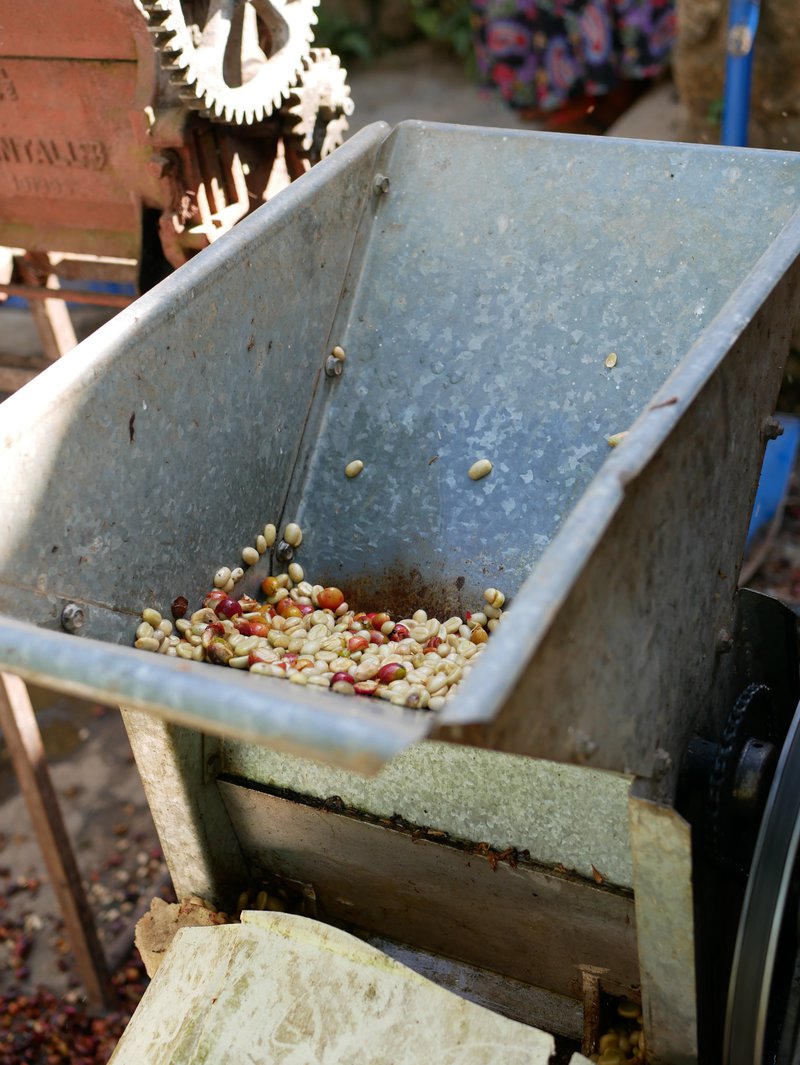
fermentation tanks or cans,
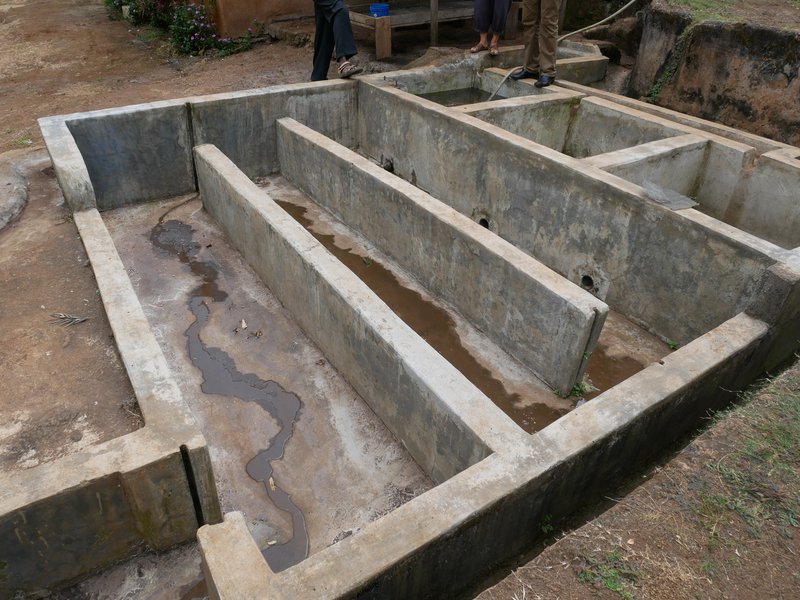
drying and picking tables.
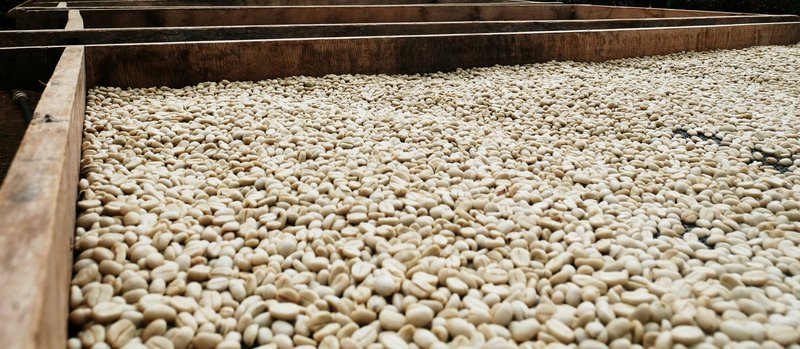
Both are family business that have received the heritage of coffee from their parents, have been raised with coffee and with the money it could provide at that time. Both have taken over the familial tradition and are willing to pass it on to their own children.
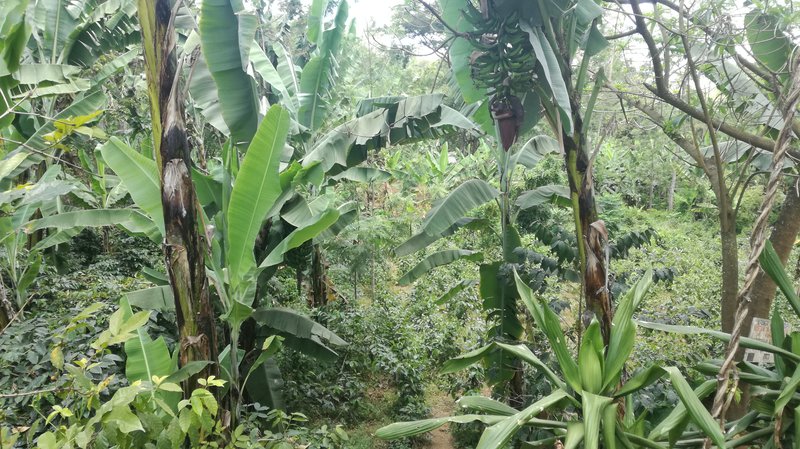
But the life of coffee farmers is no longer attractive to new generations.
All coffee farmers are facing difficulties due to the current conditions on coffee market with a price falling below the threshold of 1$/pound of arabica green coffee in September.
The ones that cannot afford the equipment or do not have the sufficient skills to take care of the processing themselves, will be paid by the cooperatives for each kg of coffee cherry delivered to the wet mill, a price even lower than the green coffee's one... Even lower than 1$/pound.
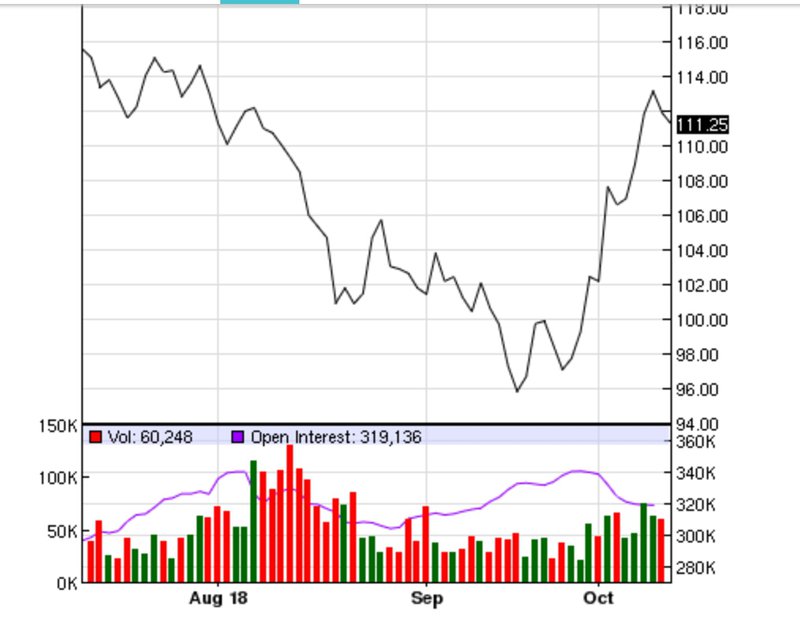
Gideon's son, Samuel, explains us why he, and all his friends that have been raised with coffee, have reached the turning point. Some of them he says, really hate coffee and all that it implies. Because they have seen their parents dedicating their life to something that does not bring them decent conditions of life ; because the slightest alteration and the burden of the climate change can make them lose an entire lot.
New generations are giving up the part. They don't want to deal with it anymore. They wish to be able to offer a good life to their children, education, decent incomes to cover the basic necessities of life. And coffee today doesn't offer a good chance.
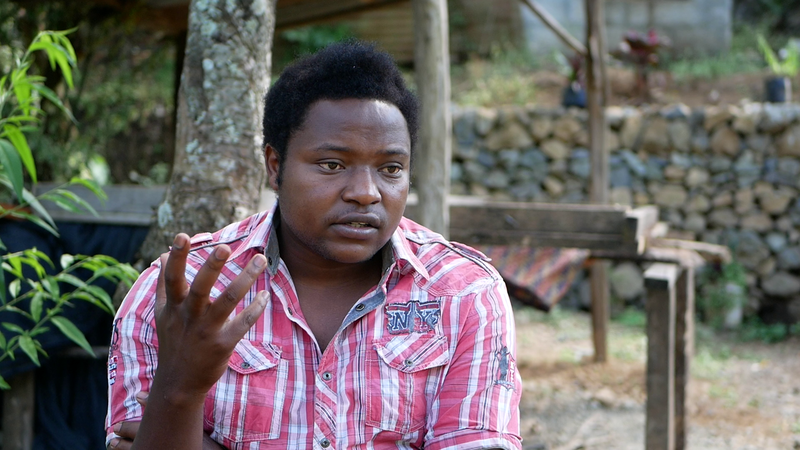
So what are the possible solutions and alternatives to motivate the new generations and make them come back to coffee?
Certifications?
Although they have their limits, they might be a lesser of two evils as they can offer an access to a new market and a better price to the farmers. The organic coffee certification might be the most interesting one as Gideon from Aranga Coffee Cooperative explains us.
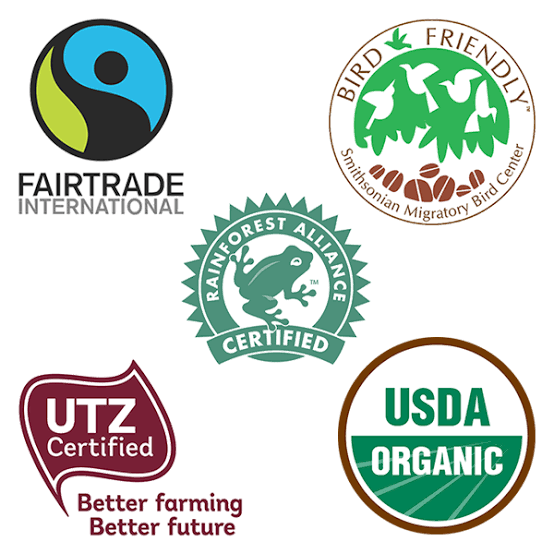
He has shifted himself from conventional to organic farming three years ago and is now organic certified. He explains that in his case, it is less expensive to produce organic coffee as he doesn't need to buy the chemicals while keeping the same volume and quality. Indeed, chemicals might be efficient on a short-term basis, but in a long term, the diseases and insects become more resistant. Moreover the natural predator have already disappeared and can no longer support natural defenses of the plant.
Insects he says, are not a major problem. He believes in the natural balance of the biodiversity: the cameleon for examples are the best allies of the coffee plant as they eat the pests.
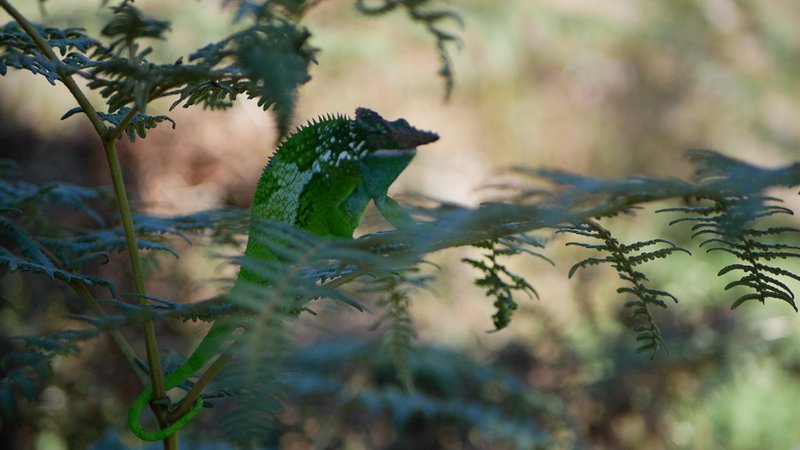
So for him, the organic certification is less constraining and also offered him access to a new market, offering him a better price.
To address coffee diseases, which is the main problem he is facing in his farm, he has planted and grafted new and more resistant varieties of the Tacri.
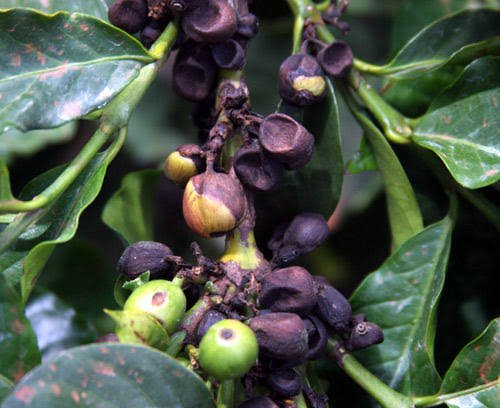
Gideon also started selling his coffee through direct trade three years ago for the specialty coffee sector. This allowed him not only to receive a better price, but also direct support and financing to buy better equipment for the coffee processing and thus control the constant quality of his coffee. This has been possible thanks to the partnerships and trust that he has developed with his buyer.
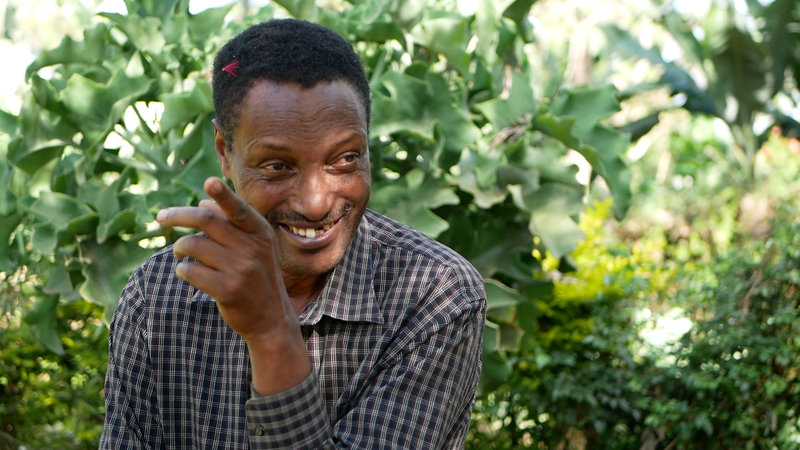
Gideon, as other coffee producers are concerned with the new regulations that have been implemented in Tanzania and that doesn't allow direct sales anymore (cf. post Coffee in Tanzania)
They are afraid of losing the added value and the better price they could get through direct trade. They also fear to lose the tight connection and support they received through these partnership.
Coffee producers claim for a better transparency and better value. They also wish to have access to credits and trainings, may it be on farming, processing, roasting or cupping to improve their own skills, knowledge and capacity of negotiating.
There is still a long way to go to meet their requirements. But it is more than time for the most powerful actors of the industry to be self-critical, to apply more sustainable and ethical methods to shape a better future to coffee.
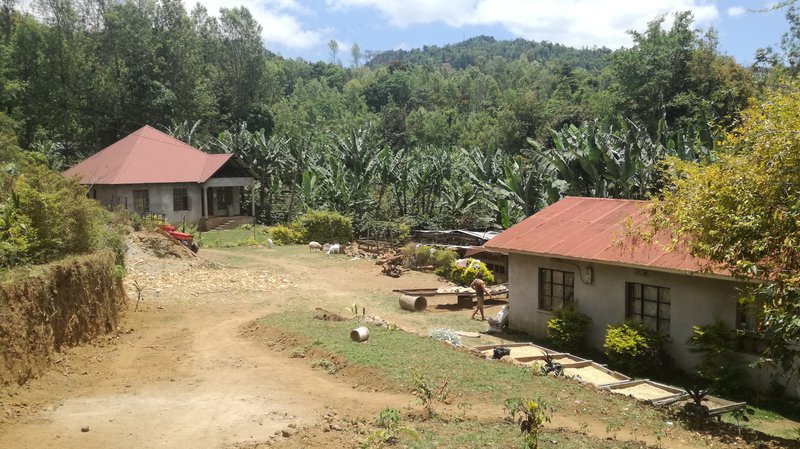

 Tanzania
Tanzania Colombia
Colombia Ethiopia
Ethiopia Guatemala
Guatemala Indonesia
Indonesia Kenya
Kenya Mexico
Mexico Philippines
Philippines Uganda
Uganda